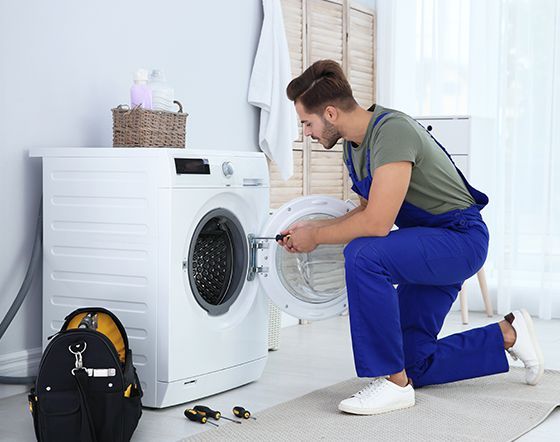In this modern age, where convenience is key, a malfunctioning washing machine can throw a wrench into our daily routines. For residents of Jumeirah Village Circle (JVC), ensuring your washing machine is in top condition is essential. In this guide, we’ll delve into the intricacies of washing machine repair in JVC, covering everything from common issues to preventive measures.
Importance of Washing Machine Maintenance
A washing machine is a staple appliance in any household, simplifying the chore of laundry. Its proper functioning is crucial for maintaining cleanliness and hygiene in the home. Regular maintenance and timely repairs can extend its lifespan and save you from the inconvenience of sudden breakdowns.
Types and Categories
Washing machines come in various types and categories, each with its unique features and functionalities.
Top-Load Washing Machines
Traditionally popular, top-load washing machines are known for their ease of use and affordable pricing. However, they may consume more water compared to front-load models.
Front-Load Washing Machines
Front-load washing machines are favored for their energy efficiency and gentle cleaning performance. They are ideal for smaller spaces and offer advanced features like steam cleaning.
Semi-Automatic Washing Machines
Semi-automatic washing machines require manual intervention to move clothes between washing and spinning cycles. They are cost-effective and suitable for areas with inconsistent water supply.
Fully Automatic Washing Machines
Fully automatic washing machines offer convenience with automatic washing, rinsing, and spinning cycles. They are available in top-load and front-load variants, catering to different preferences.
Symptoms and Signs
Identifying the signs of a malfunctioning washing machine is the first step toward timely repairs.
Noisy Operation
Unusual noises during the washing or spinning cycles could indicate motor, belt, or drum bearings issues.
Leaks and Water Drainage Problems
Leaks around the washing machine or improper drainage may point to clogged pipes, faulty hoses, or damaged seals.
Failure to Start
If the washing machine fails to start or respond to commands, it could be due to electrical issues, such as a faulty power supply or control panel.
Causes and Risk Factors
Several factors can contribute to washing machine problems, ranging from mechanical issues to external factors.
Overloading
Overloading the washing machine can strain its components and lead to premature wear and tear.
Hard Water Deposits
Exposure to hard water can cause mineral deposits to accumulate in the machine, affecting its performance over time.
Power Surges
Sudden power surges or electrical fluctuations can damage sensitive electronic components in the washing machine.
Diagnosis and Tests
Professional diagnosis is essential for accurately identifying the root cause of washing machine issues.
Visual Inspection
A visual inspection helps identify visible signs of damage or wear, such as leaks, cracks, or loose connections.
Electrical Testing
Electrical testing involves checking the voltage, continuity, and resistance of components like the motor, heating element, and control board.
Functional Testing
Functional testing ensures that each washing machine component operates as intended during different stages of the washing cycle.
Treatment Options
Once the problem is diagnosed, several treatment options for repairing the washing machine are available.
Component Replacement
Replacing damaged or worn-out components, such as belts, pumps, or bearings, can restore the washing machine’s functionality.
Reprogramming and Calibration
Resetting or recalibrating the washing machine’s control settings can address software glitches and programming errors.
Deep Cleaning and Descaling
Periodic deep cleaning and descaling help remove dirt, debris, and mineral deposits from the washing machine’s interior, improving performance and longevity.
Preventive Measures
Taking proactive measures can minimize the risk of future washing machine problems and extend its lifespan.
Regular Maintenance
Performing routine maintenance tasks, such as cleaning the lint filter, checking hoses for leaks, and inspecting seals, can prevent potential issues.
Avoid Overloading
Adhering to the manufacturer’s recommended load capacity prevents overloading and reduces strain on the washing machine’s components.
Use Quality Detergents
High-quality detergents and fabric softeners ensure optimal cleaning performance while minimizing residue buildup.
Personal Stories or Case Studies
Real-life experiences can provide valuable insights into the importance of washing machine maintenance.
Sarah’s Story: A Lesson in Maintenance
Sarah, a resident of JVC, neglected regular maintenance of her washing machine until it suddenly stopped working one day. After costly repairs, she learned the importance of preventive maintenance and now follows a regular upkeep schedule.

